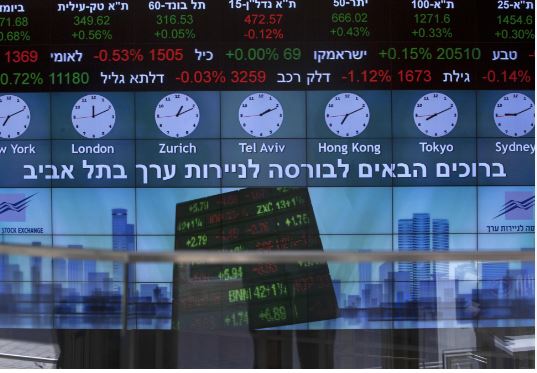
Why increased stock short selling before Hamas attack on Oct 7: Israel probes
text_fieldsUS researchers are claimed to have unearthed evidence suggesting that certain investors may have had advance knowledge of the Hamas plan to attack Israel on October 7.
According to a report published in The Guardian, Law professors Robert Jackson Jr. from New York University and Joshua Mitts of Columbia University conducted a comprehensive study indicating a surge in short-selling activities leading up to the attacks.
The researchers pointed to significant short-selling of an exchange-traded fund (ETF) tracking the Israeli stock exchange, spiking abruptly on October 2. Moreover, there was a notable increase in short-selling of Israeli securities on the Tel Aviv Stock Exchange (TASE) just before the attack. The researchers speculated that profits from these short-selling manoeuvres could potentially exceed $100 million.
The Israel Securities Authority (ISA) is currently investigating the matter, acknowledging that it is "under investigation by all the relevant parties." The ISA has not provided further details, and the Israeli police have yet to comment on the situation.
The research highlighted that the observed short-selling before October 7 surpassed levels seen during other crises, such as the 2008 financial crisis, the 2014 Israel-Gaza war, and the COVID-19 pandemic. Notably, the researchers documented a sharp increase in short-selling during a period of typically low activity in Israel due to Jewish holidays.
One striking example in the study involved the short-selling of 4.43 million new shares in Leumi, Israel's largest bank, between September 14 and October 5. Following the attack, Leumi's share price experienced an almost 9% drop on October 8.
Interestingly, the researchers noted similar patterns of short-selling in early April, coinciding with reports of Hamas planning an attack on Israel. Short-selling reportedly peaked on April 3, at levels comparable to those observed on October 2.
The researchers concluded that traders informed about the impending events may have profited from the tragic events, emphasizing the need for enhanced enforcement of legal prohibitions on informed trading.
The study was first reported on Israel's financial news website, The Marker.





